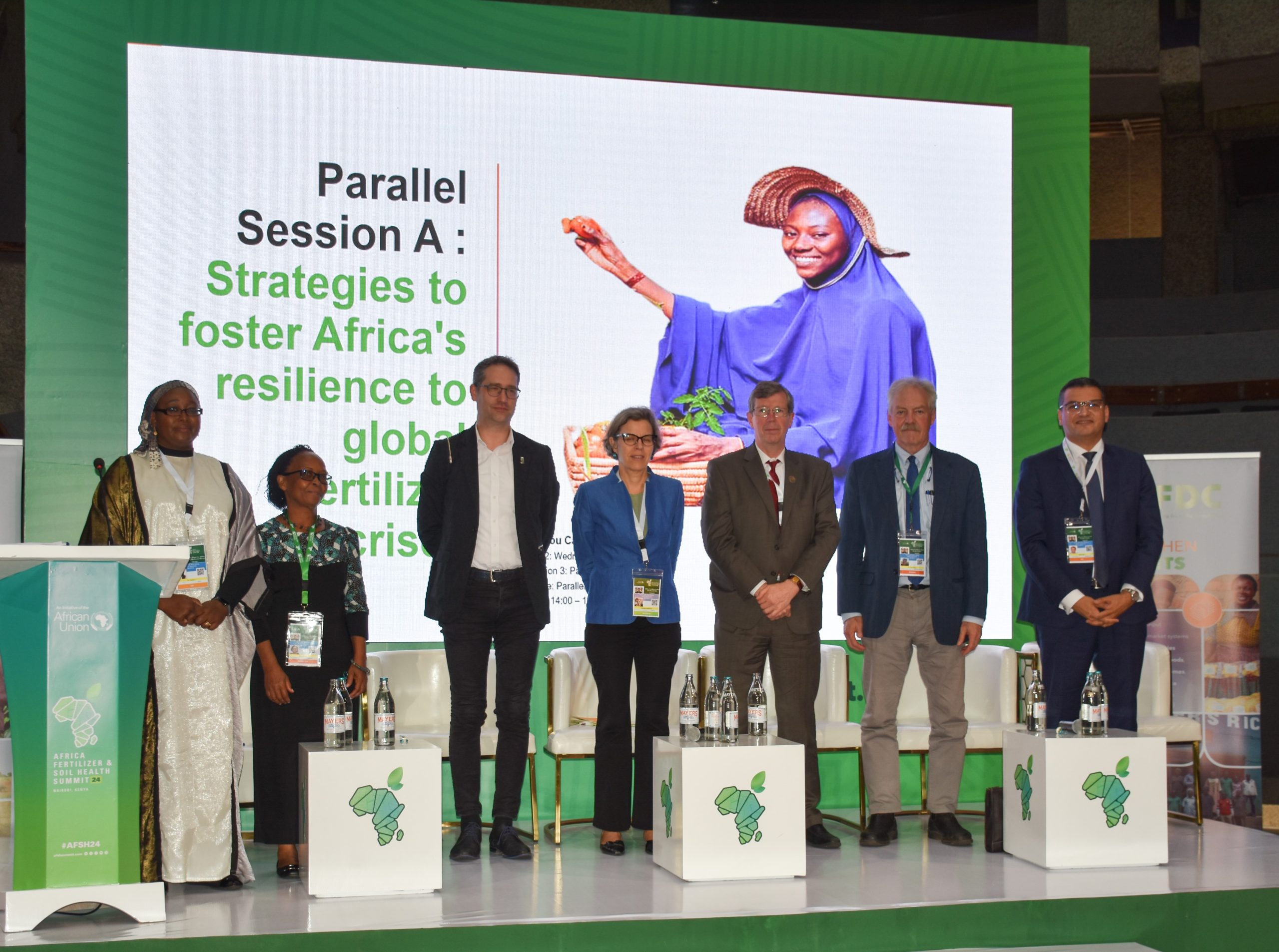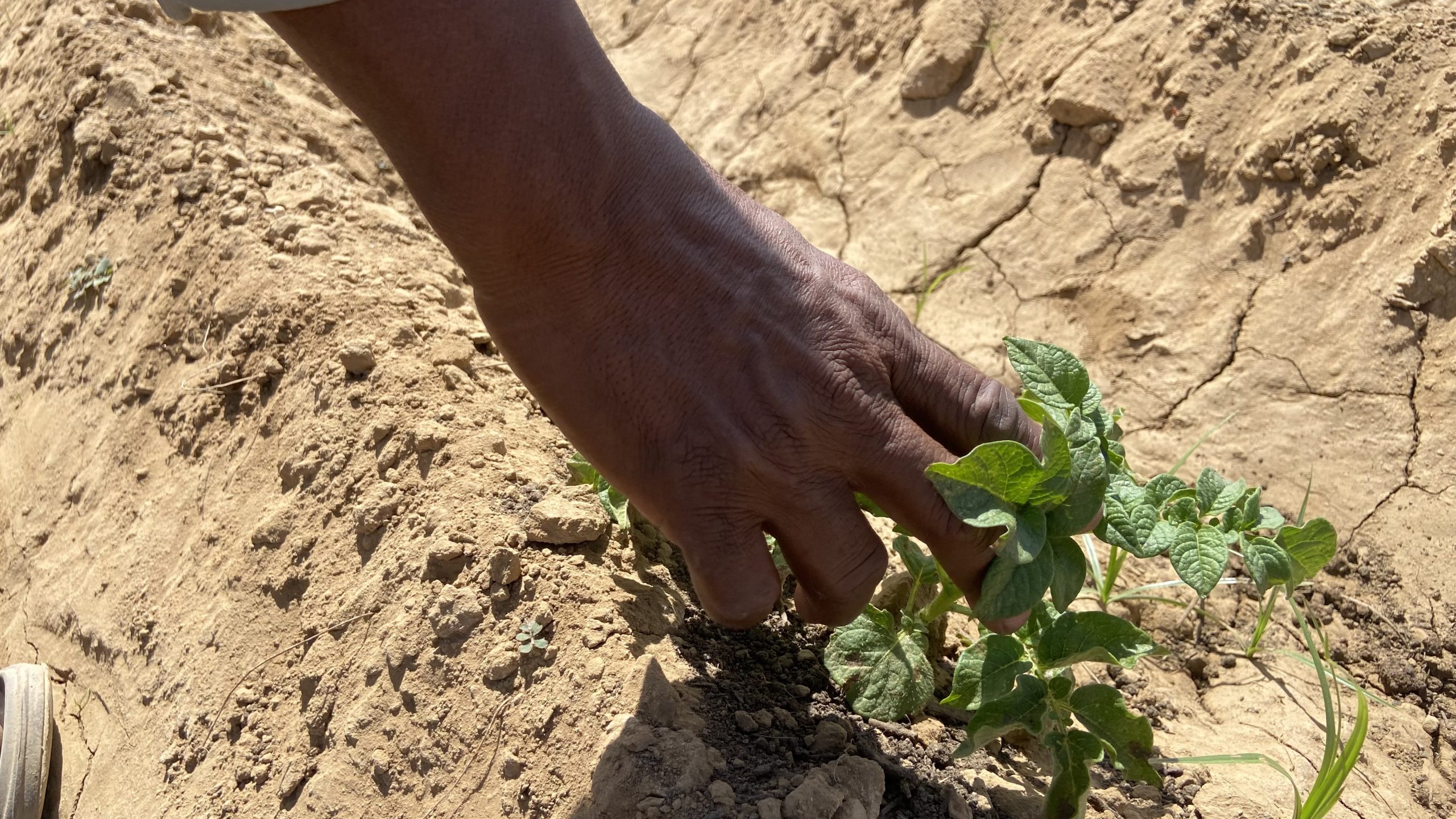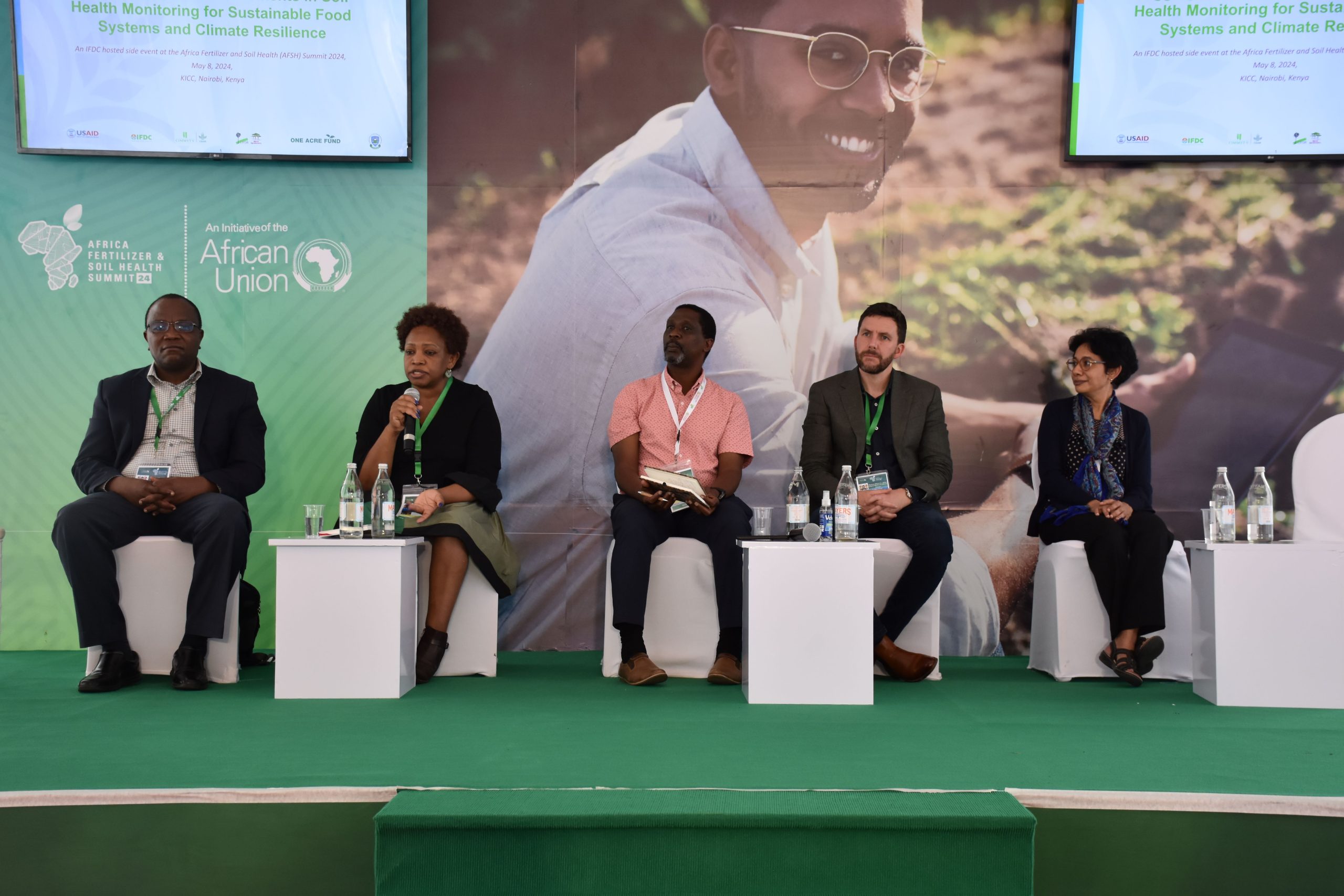
Farmers interact with soils daily, supporting the entire food system. Empowering them with tools for research and scalable learning initiatives is crucial.
Speaking as a panelist at the 2024 Africa Fertilizer and Soil Health (AFSH) summit, Paswel Marenya, CIMMYT senior scientist, emphasized the need to enhance farmers’ capacities to effectively utilize digital tools.
“Digital tools do not inherently lead to impactful changes unless they enhance farmers’ capabilities in managing soil health,” said Marenya. “The potential of a digital tool should enable farmers to shorten the cycle from receiving information to applying new techniques.”
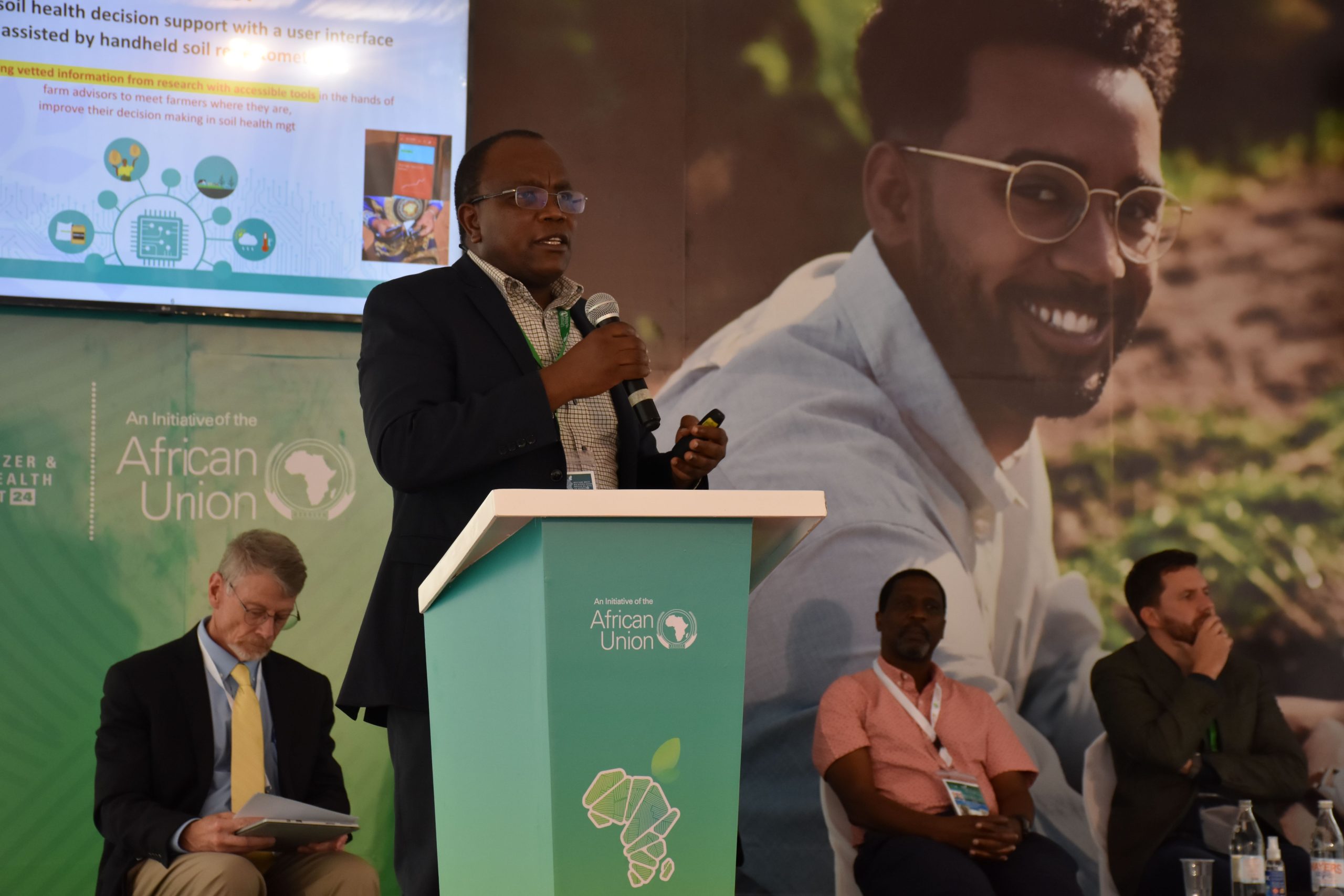
Simple, easy to use tools
One promising solution is the development of user-friendly platforms that synthesize essential information from cutting-edge research into practical tools.
“In partnership with IFDC, CIMMYT is currently collaborating to develop an interface that synthesizes essential information into a user-friendly digital platform. This interface would be complemented by tools that allow for on-site testing,” said Marenya.
“CIMMYT aims to design digital tools that not only improve access to information but enhance the farmers’ ability to learn, innovate, and adapt. This approach promises real progress beyond more recommendations,” said Marenya.
This sentiment was echoed by Leigh Winowiecki, soil and land health global research lead at CIFOR-ICRAF, who discussed advancements in soil health monitoring and highlighted the Land Degradation Surveillance Framework (LDSF) which collects data on various indicators of soil health.

Addressing the forum as the keynote speaker for the side event titled, “Digging deeper: Advancement in soil health monitoring for sustainable food systems and climate resilience,” Winowiecki showcased the global implementation and impact of the framework, noting its implementation in 40 countries.
“This framework is a field-based method that collects data on various indicators of soil health, land degradation, and vegetation diversity across landscapes,” Winowiecki said.
The findings from the framework guide practical interventions to mitigate soil erosion and influence policy.
Annie Wakanyi, director of partnerships & business development at One Acre Fund, highlighted how they prioritize farmers by providing high-quality inputs on credit, ensuring they are distributed near their farm fields, and offering training on usage, as well as assisting farmers in accessing markets for the surplus they produce.
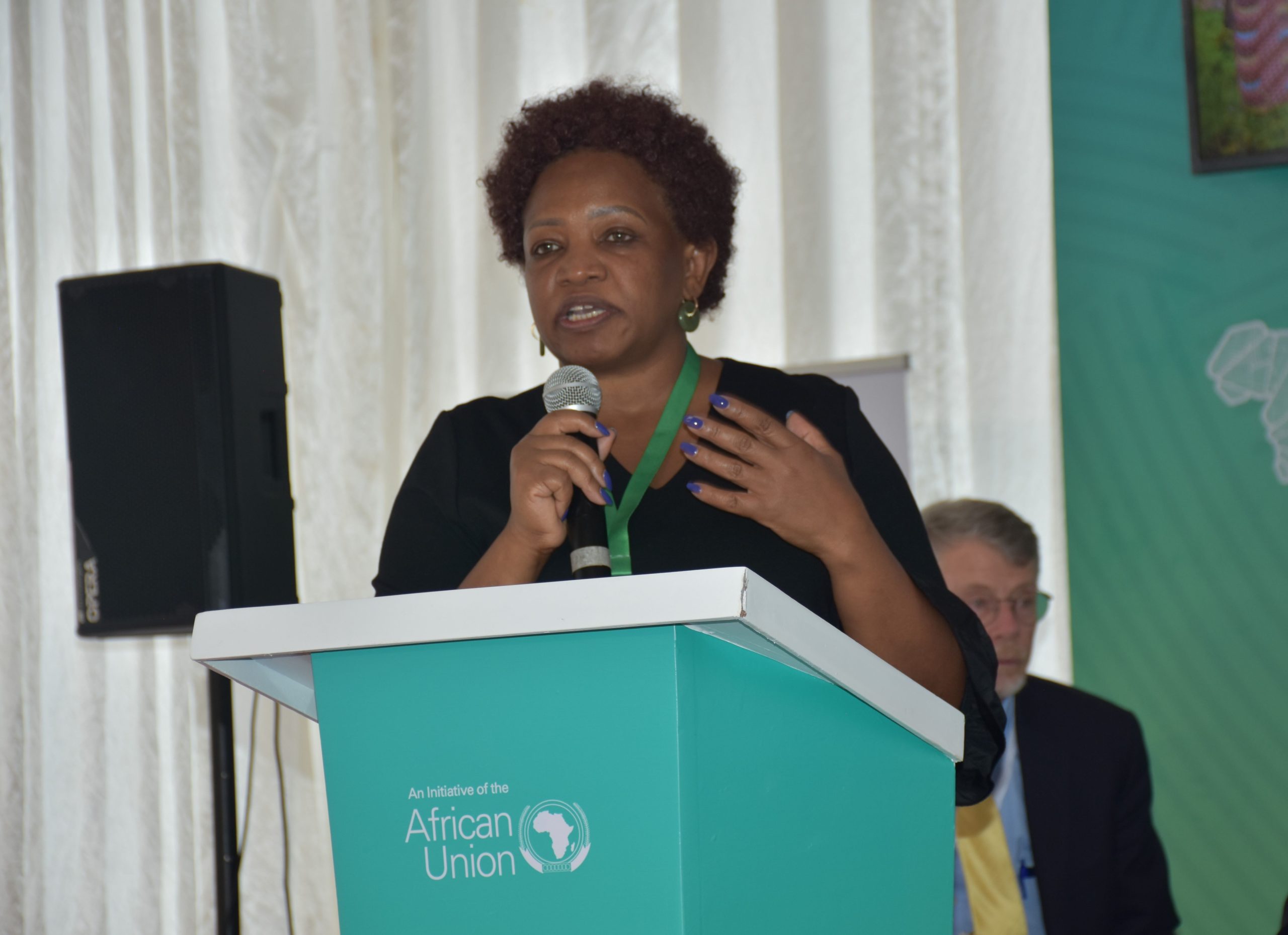
The private sector’s role was addressed by Jonathan Atkinson, Farm Service Unit Africa, who introduced the “cost to serve model” to understand the dynamics between costs and return on investments for farmers. He emphasized the need for practical, scalable approaches for soil health interventions that cater for commercial activities.
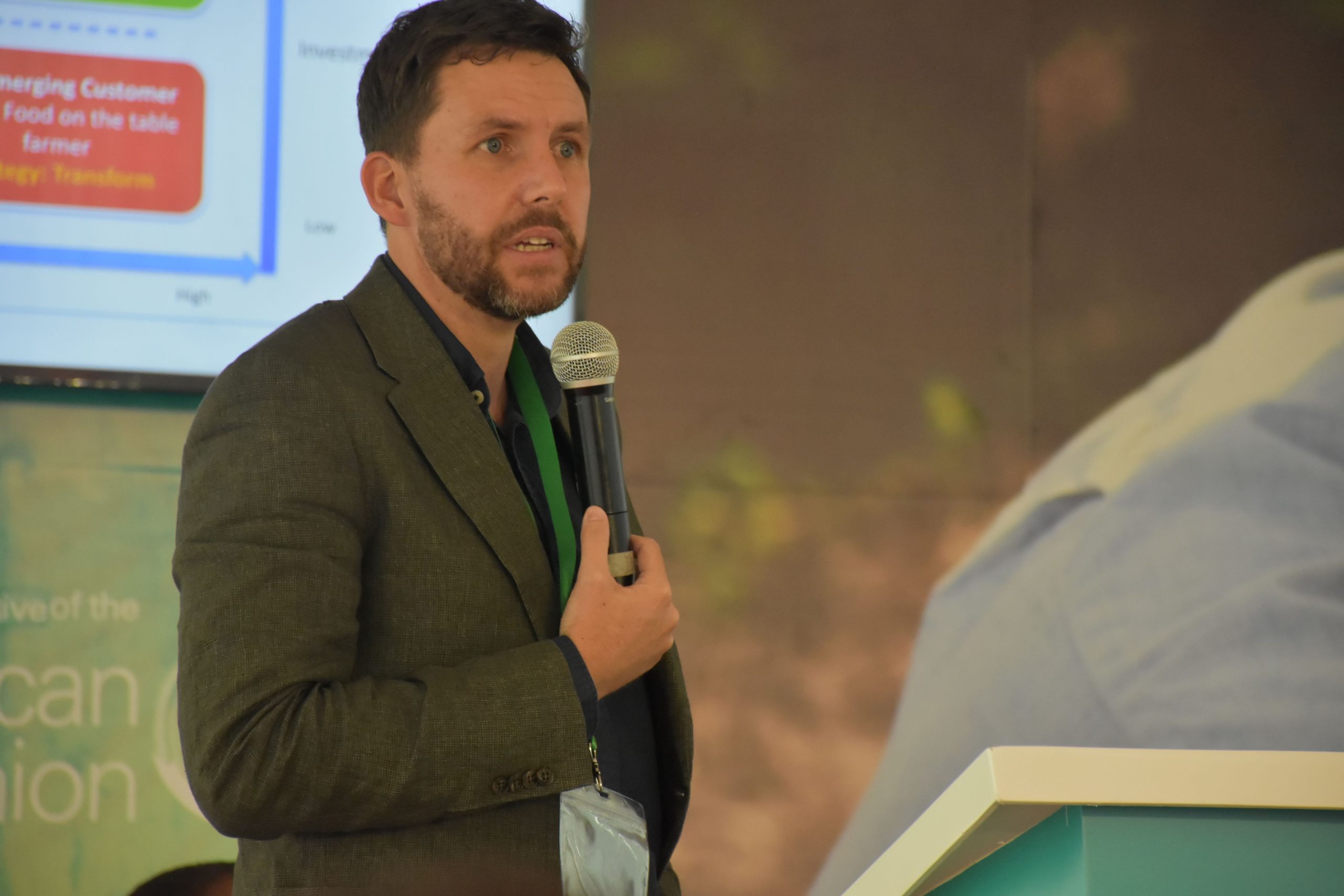
Professor Nalivata of Lilongwe University of Agriculture and Natural Resources emphasized the importance of addressing soil erosion to achieve soil health in Africa using Malawi as a case study. He discussed policy implementation on fertilizer, promoting climate-smart agricultural practices and research as strategies implemented to address soil degradation in Malawi, calling for more initiatives like incentives for farmers and building human capacity.
“This can be achieved if we maintain a collaborative approach involving government, academia, the private sector, and donor communities to transform soil health and improve livelihoods,” said Nalivata.
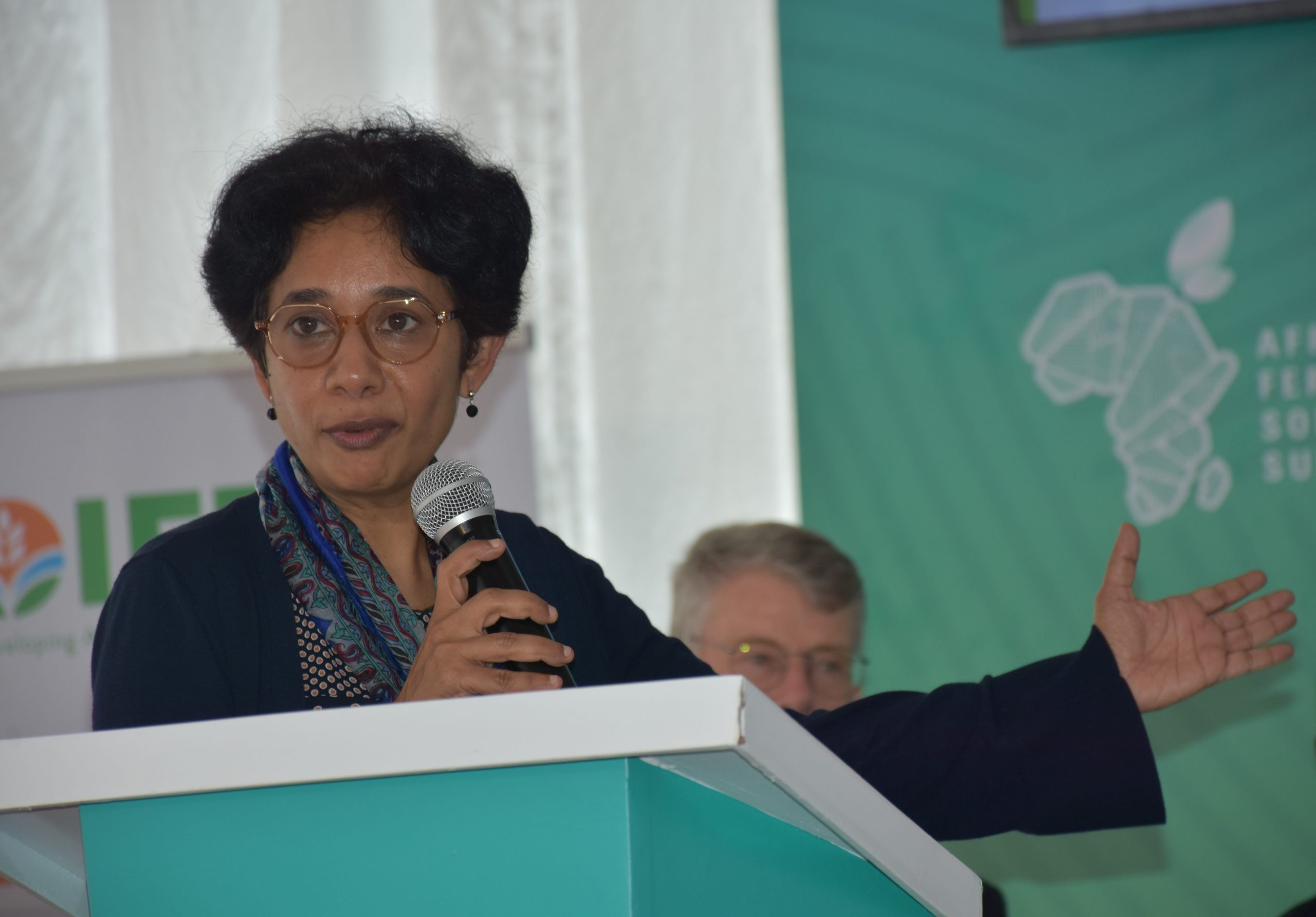
Latha Nagarajan, in her presentation on the IFDC’s USAID-funded soils initiative, highlighted how the initiative improves livelihoods through innovative soil management. She explained the ‘space to place’ approach, which integrates spatial remote sensing data with place-specific soil health data to enhance soil management decisions, increasing efficiency, resilience, and sustainability.
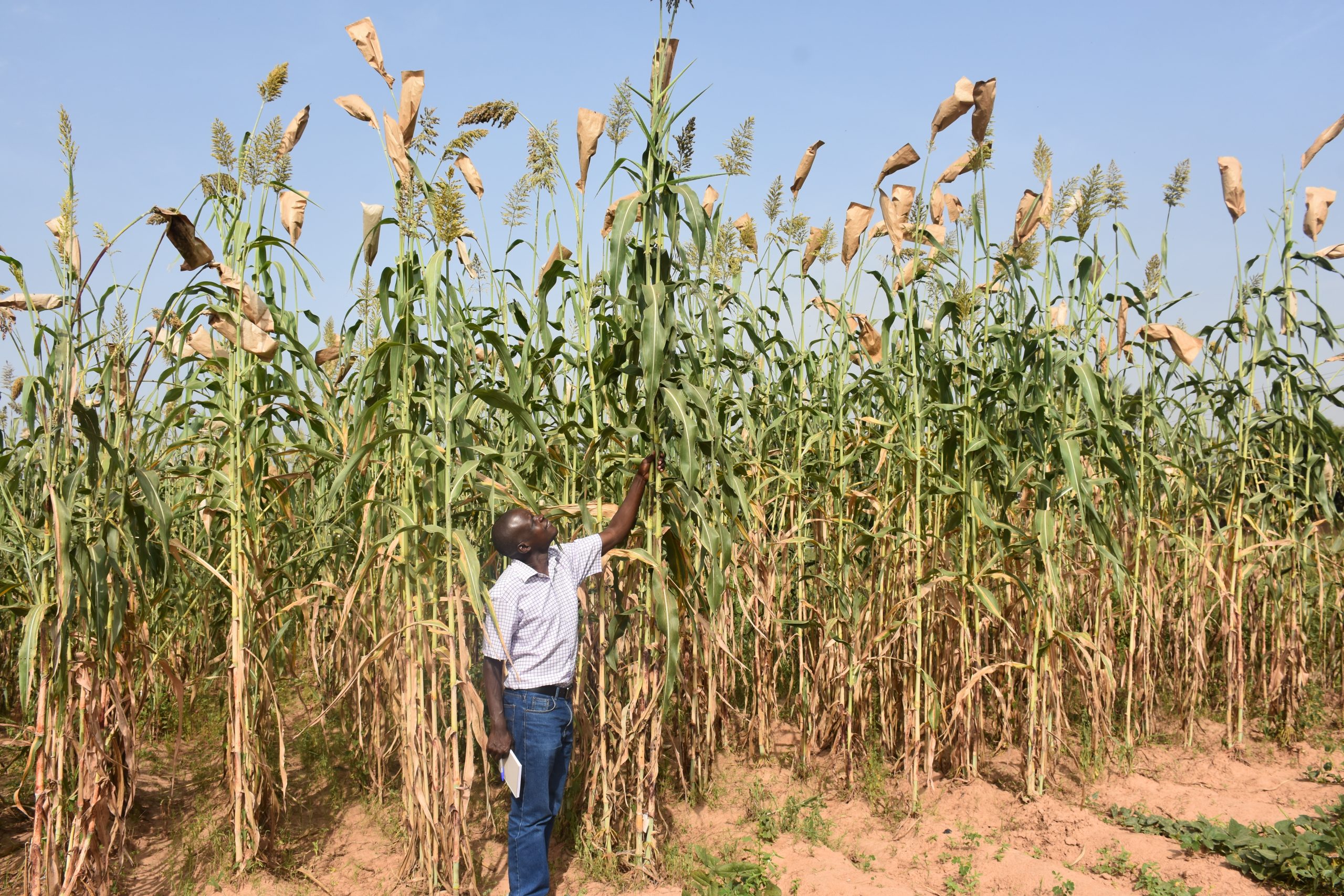
 Climate adaptation and mitigation
Climate adaptation and mitigation 